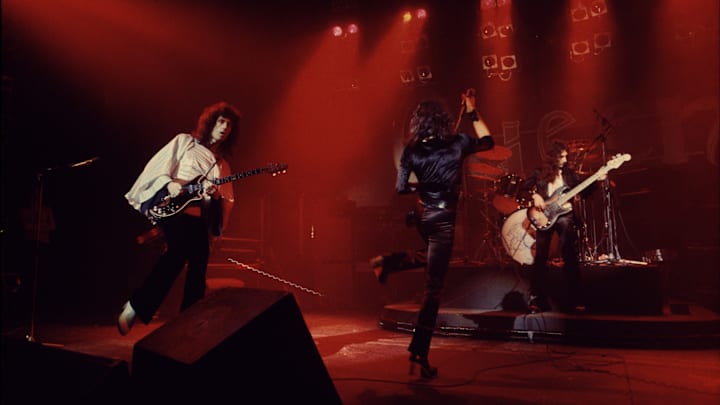“SLEDGEHAMMER” by Bachman-Turner Overdrive
The hit off BTO’s third album Not Fragile was the pop-rock “You Ain’t Seen Nothing Yet.” That slightly softer sound rocketed the boys from Manitoba to their first number-one hit. A more traditional heavy hitter from the band – “Roll On Down the Highway” also made it into the top ten. “Sledgehammer” kind of splits the difference.
It begins with Randy Bachman’s thunderous guitar before giving way to some slightly softer, more lyrical vocals. Then they hit the chorus and Fred Turner growls/shouts it back into the heavy rock that BTO was known for. We get the big solo. We get pounding bass. We get more shouts and relentless forward momentum.
BTO’s only other number-one single was the sprightly “Hey You” from their 1975 Four Wheel Drive album. They may have had slightly greater commercial success veering slightly more pop, but “Sledgehammer” typifies where BTO made their bones. They were never the very best rock & roll band out there. But they were as steady as they come. And when hit it, they hit it hard.
“CANDIDATE” by David Bowie
There are a lot of people who think David Bowie’s 1974 album Diamond Dogs was a low point – a bridge from his early decade “Ziggy Stardust” years to the late decade artistic high points of Station to Station and Low. I will admit that Diamond Dogs is uneven and messy – a concept album that can’t seem to settle on its concept. People love the one hit – “Rebel Rebel” – but they tend to skip over the rest.
They are missing some bold music if they do. “Candidate” can stand alone as a very good song, but it is intended to be the middle section of a three-song suite, bookended by two versions of the song “Sweet Thing.” Bowie’s yearning, jazzy sax ushers us in before the groove kicks in.
Guitar player/collaborator Mick Ronson was no longer with him, so Bowie broadens the instrumentation with those saxes, keyboards, and a stabbing guitar that surrounds the story of a trip through the glaring, seedy city that ends when “we buy drugs and watch a band – Then jump in the water holding hands.” I suspect these songs were highly influential on Lou Reed’s Street Hassle which came out a few years later and used a very similar song structure for its epic title track.
